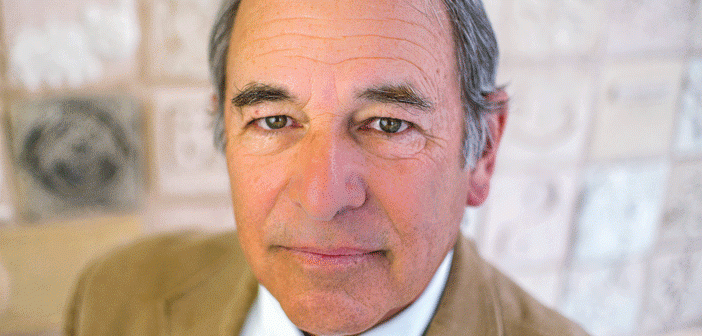MR. PRESIDENT
It was a turning point for Fritz as well. “Disparities fit with his larger interest in advocacy,” McQuaid says. In the early 2000s he began working with US Rep. Patrick Kennedy, D-RI, first on legislation that helped young children and their families access services to address social and emotional needs that could affect kids’ cognitive development; and then on the Mental Health Parity and Addiction Equity Act, which was signed into law in 2008. “He’s an enormous champion for eliminating financial and treatment barriers for mental health,” Kennedy says.
“I learned a lot from him about the legislative process,” Fritz says of Kennedy. It was good preparation for the eight-year slog to fund residency programs at children’s psychiatric hospitals. Graduate medical education is partially funded by Medicare, and until 2000 all children’s hospitals were left out of that equation. But the legislation that finally authorized payments for residents at children’s hospitals inadvertently excluded children’s psychiatric hospitals from the GME funding formula.
“It got in my bonnet that this is discriminatory,” Fritz says. “Why are incentives to train more [child and adolescent] psychiatrists not in place?” In addition to Kennedy, Fritz had worked closely on mental health issues with Rhode Island’s senators, Jack Reed and Sheldon Whitehouse. When the children’s hospital GME bill came up for reauthorization, in 2011, Whitehouse authored a provision to include funding for children’s psychiatric hospitals. When it failed, Whitehouse, with Reed’s support, placed a hold on the bill on the Senate floor.
“It was so moving because no one ever does that for mental health,” Fritz says. “He went out on a limb to address this as a parity issue.” The maneuver meant that no pediatric GME funding would be authorized until the hold was lifted—and though children’s hospital lobbyists agreed with Whitehouse’s provision in principle, they weren’t pleased to become collateral damage in the process. The hold remained in place for two years, with the bill finally passing the Senate in 2013; in March the funds reached Bradley, which had been paying residents from its operating budget. “It’s been quite an education about how to get these things changed,” Fritz says.
This October Fritz will have a national platform to apply those lessons, when he becomes president of the American Academy of Child and Adolescent Psychiatry (AACAP). Since his election to the post, two years ago, he has been working on his presidential initiative: to integrate physical and mental health care, an effort that would entail training psychiatrists so they can be effective in medical settings, and primary care physicians to deal with psychiatric problems. It’s an approach that exemplifies Fritz’s belief that the mind and body work together and thus must be treated together; but that also addresses the ongoing shortage of child psychiatrists.
“The demand is greater even though the epidemiology hasn’t changed,” Fritz says. He rattles off statistics: 20 percent of children have a diagnosable psychiatric disorder; 7 to 10 percent have a problem that impairs their functioning or development; only about a quarter of them are getting treatment. As health care access has improved and stigma has diminished, more kids are seeking care, overwhelming mental health services. But it’s critical that treatment begin as soon as possible, while the brain is still developing. “Childhood is the most promising time to nip problems in the bud, because it’s easier,” Fritz says. “If we intervene early, we can, in effect, inoculate against future problems.”
Kennedy, who after he left Congress, in 2011, founded the Kennedy Forum, which is focused on implementing the mental health parity act, is thrilled he’ll have his friend’s help on Capitol Hill. “The Holy Grail of mental health is intervening during childhood and adolescence—which means Greg Fritz is where the action is going to be,” Kennedy says.
“It’s been exciting to see him taking his leadership to the national level,” McQuaid agrees. “Becoming president of AACAP is a capstone for him.” But the local pride is bittersweet: Fritz will go half time at Brown and the hospitals this fall; and after his two-year term is up, he plans to retire. McQuaid, who, as director of the Clinical Psychology Training Consortium, continues to look to Fritz as a mentor, says he serves as a role model in multiple contexts: as a leader, an activist, a researcher, and a family man. “It will be a huge loss to us,” she says.
Sachs, who collaborates with Fritz on hiring decisions at Bradley, says Fritz’s retirement will have a “significant” impact there. “This is a remarkably large and eclectic department,” Sachs says. “Everyone gets along, treats each other with respect, works well together—which is not the case everywhere—and that’s Greg. He fostered that right from the start.” Fritz and his wife invite the entire division to their Warren, RI, home every December for “one of the most anticipated parties of the year,” Sachs says. McQuaid says her children, ages 11 and 13, “always want to know, ‘when is Greg’s party?’”
In addition to his many administrative duties, Fritz, who is 70, still sees patients, supervises trainees, and is on call nights and weekends. “I consider myself fortunate I can have my hand in so many things,” he says. “I haven’t figured out which of my duties I will cut” when he assumes the AACAP presidency.
He does know what he’ll do when he retires: “I intend to write hunting and fishing stories for outdoor magazines.” He’ll continue to hunt birds with his wirehaired pointing griffon, Jack; he’ll keep up his winter fishing trips with friends to exotic locales, and, with Nancy, his regular visits to the Bay Area to see old friends, and to Oregon to see their oldest daughter and their two grandchildren.
“I thrive on variety and a fairly high stimulation level,” Fritz says. “After having worked energetically for 40-plus years, is it possible to slow down?”
Sachs bets no. “I don’t see him fading into the sunset,” he says.




